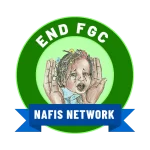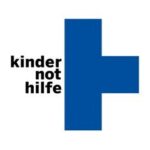

Terms of Reference for developing a manual on integrating FGM into other programmes to support FGM/Community lobbying.
Project Title: Empowering local communities to combat FGM/C – female genital mutilation/cutting in Somaliland
Location: Maroodijeeh, Togdheer and Awdal – Somaliland
- About NAFIS
Network against FGC in Somaliland (NAFIS) is an anti-FGC civil society Network that was established in 2006 to work toward ending female genital cutting (FGC) in Somaliland and empower women and girls to claim their rights. To reach this ambitious goal of ending SGBV, especially in FGC, NAFIS utilizes a holistic approach that includes coordination and networking, policy dialogue, research, women’s economic empowerment, and enlightening the public.
In collaboration with Kindernothilfe (KNH) with the grant awarded from the German Federal Ministry of Economic Cooperation and Development (BMZ), NAFIS Network is implementing a multi-year community empowerment project on abolishing violence against children and women in Marodijeh, Togdher and Awdal regions in Somaliland. The project has explicitly empowered the Cluster level Associations (CLAs) of the Self-help group approach. Strengthen NAFIS members and other civil society organizations. Works with health workers at Mother and Child Health Centers and, finally, the politicians and legislators to act on policies/laws affecting women and children.
- About the consultancy service
A comprehensive manual for integrating FGM/C in to programs will be developed. Integrating FGM/C into other development programs will address female genital mutilation/cutting as a development issue. This manual will guide the other programs how to integrate FGM in non GBV projects.
3.0 Objectives of the manual
The core learning objectives is to increase understanding the cultural environment and the reasons behind FGM as a social norm; improve understanding of FGM as a gender and development issue; develop participants’ skills and capacities to adopt strategies, tools and approaches to address FGM in development projects and programmes.
3.1 Specific Objectives
- This Guidelines is designed to skill up FGM/C stakeholders including project managers, officers’ community facilitators and etc, about integrating FGM/C into development programs in order to abandon FGM.
- This Manual will provide guidance on FGM/C intervention approaches within the development programs.
- It will direct the trainer of trainee in enable to facilitate a valuable training concerning FGM/C mainstreaming approaches into development programs which enabling the trainer to prepare the training manuals for what is aimed to be provided for the program managers, officers, and community facilitators. For instance, this Guidelines is harmonizing both as a trainer guidance and as integrating guidance for the users.
4.0 Target group of the manual
The target group of this manual is stakeholders who will be more engaged in preventing and integrating FGM/C into development projects and programmes and those who will undertake trainings on addressing FGM in development projects and programmes targeting NGOs & CSOs and their respective program officers working in the areas of sexual and reproductive health, women’s and girls’ rights, women’s empowerment, and poverty eradication, among others.
It is expected that participants who are attending at validation workshop of this Guidelines should be skilled trainers/team to easily adapt the contents of the Guidelines. They should have a good understanding of gender and human rights issues and be knowledgeable about FGM issues.
In addition, they should be able to facilitate group learning as well as being skilled in project planning to assist their respective organizations and trainees to integrate and/or improve the FGM component in their projects and programmes.
5.0 Purpose of the Consultancy
This manual will be developed in the framework of the empowering communities to collective abandon FGM/C in Somaliland by mainstreaming female genital mutilations/cutting into development programs to address FGM/C as a development matter. This manual is aimed to guide FGM stakeholders including Local NGOs program staff, project officers, community facilitators and international Organizations’ project staff.
6.0 Expected Deliverables
The consultant will be expected to:
- Submit a detailed work plan for the consultancy period
- In consultation with Project Team, develop and submit draft of the integrated manual in line with the objectives detailed above.
- Revise and refine the modules of the manual after receiving feedback from NAFIS team
- Deliver the finalized integrated
- Validate the project staff and the change agent women to the contents and the usage of the manual.
The Manual should be:
- 5 spacing, Times New Roman font, size 12.
6.1 Criteria for selection
The consultancy items expectation and maximum score are presented in the table below.
Evaluation Item | Expectation | Max Score |
Organizations/Consultant Experience | A brief of past relevant assignments indicating scope, geographic coverage, and staff involved and budget. | 30 |
Understanding of TOR and Proposed Approach and Methodology/Work Plan | Consultant’s perspective of what the assignment entails and the key considerations that should be made to implement it successfully. | 20 |
Qualification & Experience of Staff | CV’s for consultants and team members indicating their academic qualification and clear relevant experience summary | 20 |
Financial Costs | A breakdown of costs detailing proposed staff days, daily rates, tax, and other direct costs related to the assignment in USD. | 30 |
7.0 Requirements of the consultant
The consultant should have a mix of expertise in Child rights, women and youth empowerment, female/male empowerment, youth involvement and education.
Consultant. Preferably at Masters level. He/she should have strong experience in Child rights, female empowerment, community development, youth involvement and education as well as excellent analytical, communication, team management and communication skills (verbal and written). He/she should demonstrate experience in impact evaluations and practical experience in qualitative and quantitative research methodology, evaluation design and implementation. The consultant must be committed to implementing child protection and child safe guarding practices during the consultancy service. Command of local language(s) Somali and English. Provide references on similar or related manuals focusing on children s’ rights, GBV/FGM etc. would be an added advantage.
8.0 Tentative financial proposal (budget) containing:
- Consultancy fees/costs,
- Any other related costs and required for the proper execution during the developing manual.
- In case of institution paying VAT you should include it in financial budget.
8.1 Payment Terms
- Payment plan shall be based on deliverables outlined upon successful and satisfactory completion of activities. Therefore, the payment terms shall be as follows;
− 40% initial payment – upon signing the contract.
− 60% – final payment – Upon submission of final and accepted final advocacy manual by the executive director.
- Payment under this Agreement will be made by bank transfer to the consultant.
9.0 Proposed time-frame
This consultancy is expected to be completed within 20 days. The consultant will be expected to start working immediately, on 14th March 2023.
10.0 To apply;
Interested Consultants/ University departments/lecturers/individuals or firms are requested to submit:
- A technical proposal detailing their interpretation of the TOR, proposed methodology including sampling framework, work schedule and proposed budget;
- A capability statement demonstrating how they meet the required qualifications and competencies;
- Copies of all relevant Curriculum Vitae (CVs).
- Examples of previous work similar to this assignment
If you have experience working in a similar capacity, meet and the above profile please submit your proposal including your technical and financial plan and documents to NAFIS using the following email address by 11th March 2023 to procurement@nafisnetwork.org
